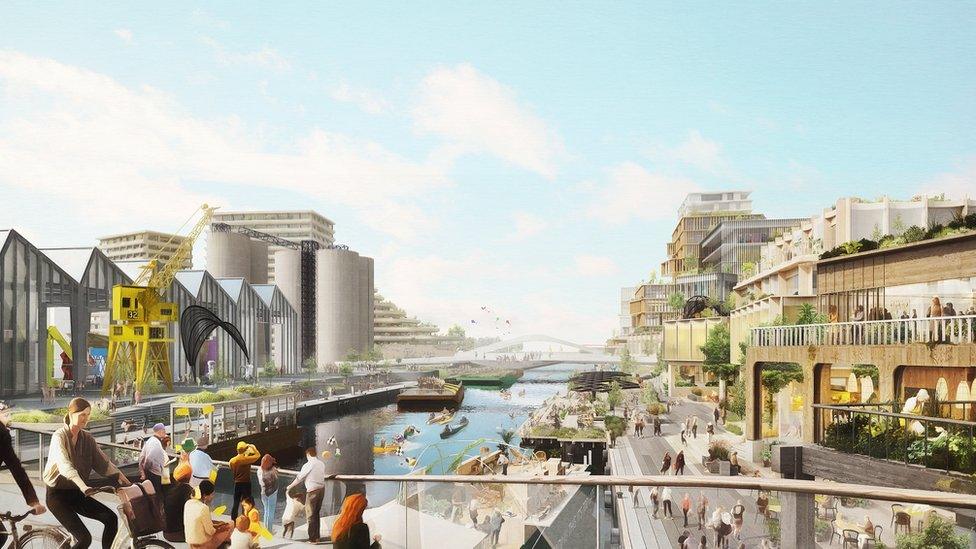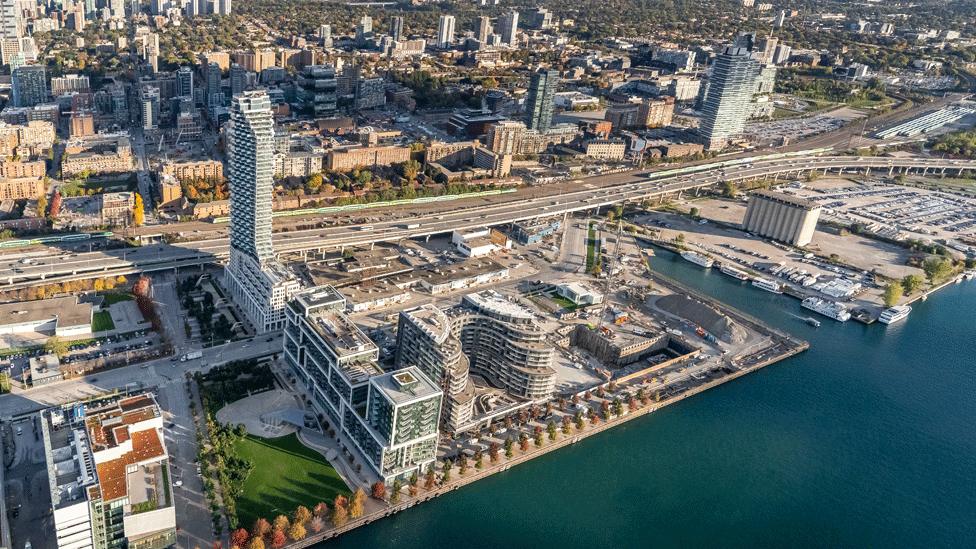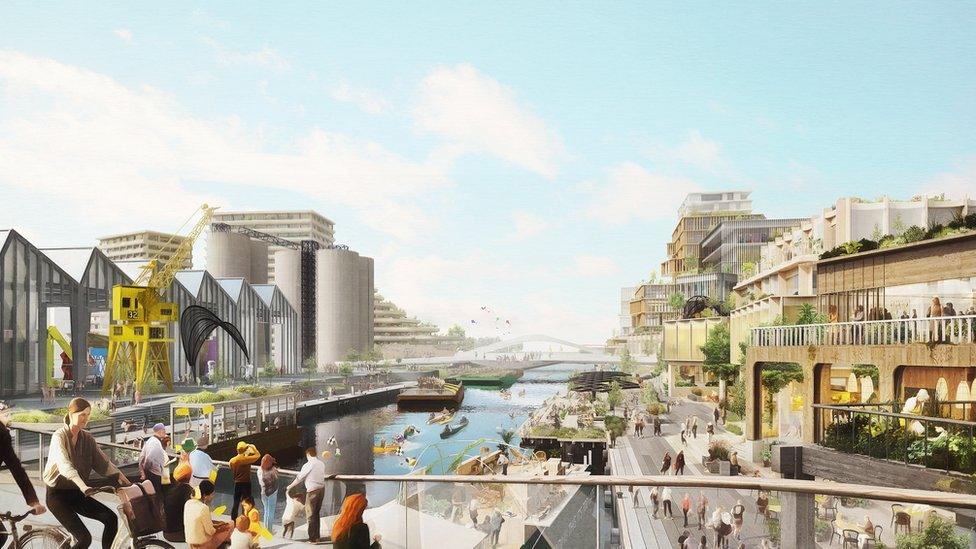Google asked to justify Toronto 'digital-city' plan
- Published

An image from Sidewalk Labs's plans for Toronto
The "appropriateness" of Google's sister company's plan for a "digital city" in Toronto has been questioned.
A panel set up to scrutinise Sidewalk Labs's plan has asked it to explain what the benefits would be for citizens in collecting large amounts of data.
The company wants to build a sensor-laden, eco-friendly neighbourhood with all the latest technology innovations.
But it has faced opposition locally. A final decision on whether it can proceed is due next month.
Public asset

The former dockland and industrial area of Toronto sits on the edge of Lake Ontario
Sidewalk Labs's plans for a "city... built from the internet up" include sensors to monitor traffic, noise, weather, energy use and even rubbish collection.
But now, the Waterfront Toronto's digital strategy advisory panel, external has questioned the "appropriateness and necessity" of some of its innovations and asked whether "sufficient benefits had been identified to justify the proposed collection or use of data".
It also asked Waterfront Toronto, the body set up to oversee the development, to provide more explanation of how it intended to oversee this data, which it previously decreed must be treated as a public asset.
Michael Gist, who chairs the panel, wrote, external: "For Sidewalk Labs, this means providing additional context for their digital proposals, including but not limited to an explanation of why digital approaches to solutions were chosen over non-digital ones".
Scaled back
An earlier report from the panel asked whether some of Sidewalk Labs plans were "technology for technology's sake".
The plan to develop a site in the city known as Quayside has been controversial since it was announced, in 2017.
Sidewalk Labs initially wanted to develop 190 acres (0.75 sq km) site but Waterfront Toronto has now decided this must be scaled back to just 12 acres initially.
Responding to the latest report, Sidewalk Labs told BBC News: "The proposal for Quayside does not include - and has never included - any surveillance systems, social credit scores or facial recognition.
"Like the rest of Toronto, all streets and parks would be publicly owned and operated by the city.
And while there will be digital technologies embedded in Quayside's buildings, to achieve our sustainability goals, the personal information that would be collected is for energy and waste management and billing purposes - the same as for residents across Toronto today."
- Published25 June 2019

- Published31 October 2019
